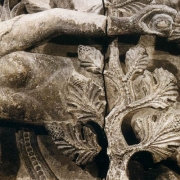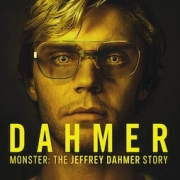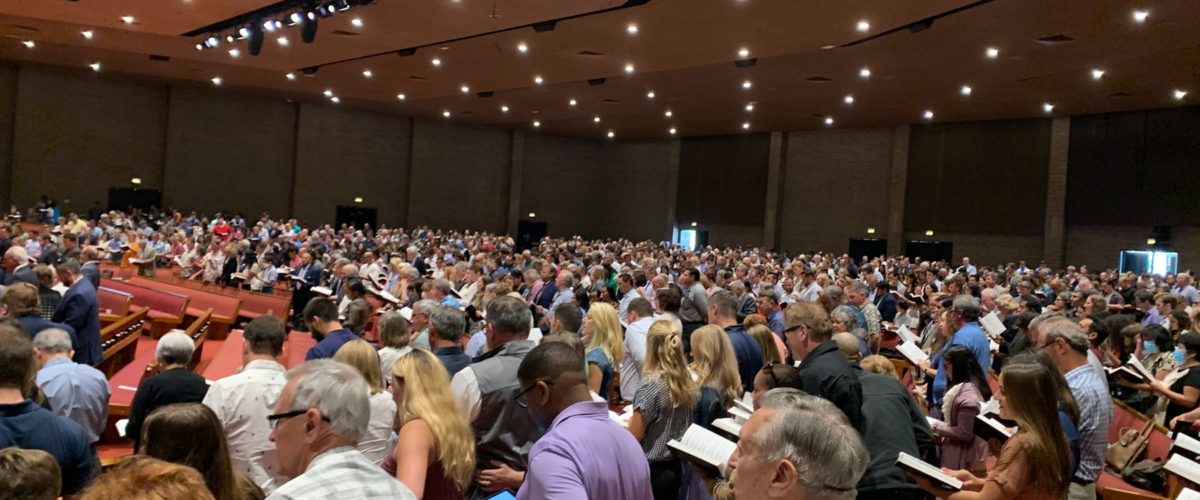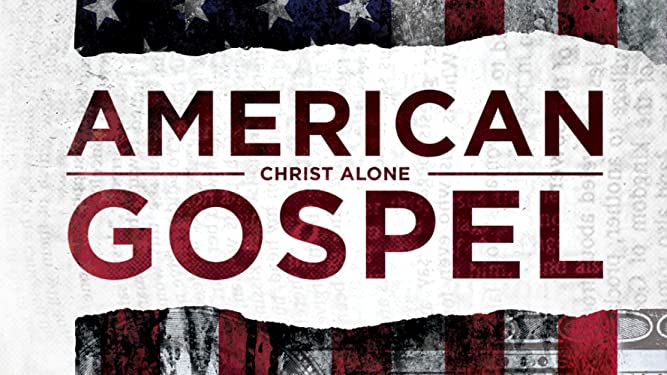How My Evangelical Theology Disconnected Me From My Black Neighbors, and How I’m Healing
This article originally appeared on May 29, 2020 on Medium.
In 2015, I was a huge conservative talk radio listener. Every day, I’d tune in to Hugh Hewitt, Mike Gallagher, Dennis Prager, Rush Limbaugh, Sean Hannity, and Mark Levin. I was sold on everything they said. Then every few months, another black man would die at the hands of a police officer. And while I never would have admitted this, my initial gut reaction was not to grieve, but to turn on conservative talk radio to hear what these conservative white men thought about it so that I could have the “right” position on it. I figured the media was just trying to spin an anti-white narrative, that there must have been something these black men did that caused this, and that once again the black community would be proven to be wrong when the facts came out. Then these commentators would walk me through that very journey to discover how each story would follow that pattern.
I said I wasn’t racist, of course. I figured black people were just generally always wrong.
My lack of awareness was stunning.
That same year, I confidently walked up the sidewalk of a well manicured front lawn toward the large, dark wood door. It was finally time. My entire life, I had been longing for this moment — the beginning of a dream.
I knocked on the door, was greeted by a lady from our large church that I had never met, and walked into the front room.
It was the beginning of a year long journey with the 10,000 Fathers Worship School, which is an organization that exists to turn worship leaders into worship pastors through a discipleship-driven journey into character, competency, and community. Their promo videos were amazing! And I was sure they were going to love my wisdom about worship and my songwriting abilities.
The evening began with dinner. Of course, I managed to sit next to the founder Aaron, where I had the opportunity to share some of my really crazy stories, as well as a few of my theological nuggets of insight.
Then we began our first session. Dave and Cameron tag teamed that first evening. Dave had been the preacher for the college ministry where I first saw Aaron leading worship 17 years prior. So the whole event felt like poetic sovereignty to me. It was meant to be! I was reunited unexpectedly with two of the heroes that I looked up to years ago, even though they had never met me back then. God was controlling this whole situation to bring about something amazing.
But then there was this moment, a moment forever imprinted on my heart. Dave said, “You can only surrender as much as you know about yourself to as much as you know about God.”
As much as you know about yourself? That wasn’t a part of my sanctification (Christian spiritual growth) formulas. But he did mention the concepts of surrender and knowing God. So that felt God-centered.
He went on, “You need to have God awareness and self awareness.”
Again, my mind stopped and focused on this strange new framework. I mused, “Well, my God awareness is totally fine. But I’ve never even thought about self-awareness. So I guess that might be a good thing to do.”
As the evening went on, they eventually had us take out a sheet of paper and write down our top ten high points and our top ten hard times in life. My hard times were easy to write down, but difficult to narrow down to just ten. My high points seemed pretty cliche, as if I was filling in the right answers for a Spiritual Respectability Test. And kind of surprisingly, it was hard to come up with ten.
They then had us rate the experiences on a scale of 1–10. My hard times were all 10’s. But most of my high points were 2’s and 3’s, with the obligatory wedding and births of children as the right answer of rating 10.
We broke out into separate groups to discuss our thoughts. But I was kind of quiet.
Then when we went back to our next session, they had us narrow down those 20 events to the Top 10 impact moments overall.
Of my top 10 moments, eight were hard times. The two that were high points were the obligatory marriage and birth of kids answers.
My heart began to pound. I had some very life altering, major events that didn’t even make the list of the Top 20. My high points, other than the two right answers, just seemed cheap and silly. My hard times were unbearable to look at.
I wanted out.
I tried to control my breath. Don’t cry. Hold it down.
But Dave just kept talking. And with every sentence he spoke, every diagram he drew, my heart began to break.
Eventually the evening ended. I wandered over to the same dining room table where I had sat next to Aaron during dinner and shared my crazy stories and amazing insights. But this time at the table, I wept.
I cried hard. And I didn’t care who saw. I remember how tight my eyes felt. I couldn’t open them.
About a minute later, I felt a warm hand on my shoulder. It was Dave.
All I could say was, “I had no idea how hurt I was.”
Over the next year, our coaches at 10,000 Fathers walked us through a journey of grieving our wounds and awakening to our wonders that had been planted within us as children, but had been long buried. They introduced us to authors such as Henri Nouwen and Richard Rohr. And for the first time in my life, I was listening to people that I disagreed with.
As my self-awareness began to deepen, my heart toward myself began to soften. I had no idea how many details of my life had been the fruit of subconscious pain. I had no idea how much of my theology had been adapted as a survival mechanism to numb my pain and suppress my wounds throughout my life.
Donald Trump was my dream candidate. While I had fallen in love with George W. Bush’s “compassionate conservatism” of the early 2000’s, I had become weary of the tendency I felt amongst conservatives to get pushed around by the media and the Democrats. If only someone would come along that would bully those liberals!
My theology only served to fuel this. I believed in a retributive theological system that said that God chose who gets to go to heaven, that God sends the rest to an eternal lake of fire to burn forever, and that it was all to the glory of God. Like the famous author and pastor John Piper, I believed that God gets glory when people burn in hell.
John Piper is a huge fan of Jonathan Edwards, the 18th Century preacher of “Sinners In the Hands of an Angry God” who said,
“The God that holds you over the pit of Hell, much as one holds a spider, or some loathsome insect, over the fire, abhors you, and is dreadfully provoked; his wrath towards you burns like fire; he looks upon you as worthy of nothing else, but to be cast into the fire; he is of purer eyes than to bear to have you in his sight; you are ten thousand times so abominable in his eyes as the most hateful venomous serpent is in ours.”
“It would be dreadful to suffer this fierceness and wrath of Almighty God one moment; but you must suffer it to all eternity…you will know certainly that you must wear out long ages, millions of millions of ages, in wrestling and conflicting with this almighty merciless vengeance; and then when you have so done, when so many ages have actually been spent by you in this manner, you will know that all is but a point to what remains.”
Regarding how Christians will feel about that, Edwards said,
“Indeed [the saints] are not called upon to rejoice in having their revenge glutted, but in seeing justice executed, and in seeing the love and tenderness of God towards them, manifested in his severity towards their enemies.”
In his book Captive to Glory, John Piper extols the wisdom of Jonathan Edwards’ delight in the “just” suffering of others with the following quote:
“…why the sufferings of the wicked will not cause grief to the righteous, but the contrary.” He says, Negatively; it will not be because the saints in heaven are the subjects of any ill disposition; but on the contrary, this rejoicing of theirs will be the fruit of an amiable and excellent disposition: it will be the fruit of a perfect holiness and conformity to Christ, the holy Lamb of God. The devil delights in the misery of men from cruelty, and from envy and revenge, and because he delights in misery, for its own sake, from a malicious disposition.
But it will be from exceedingly different principles, and for quite other reasons, that the just damnation of the wicked will be an occasion of rejoicing to the saints in glory. It will not be because they delight in seeing the misery of others absolutely considered. The damned, suffering divine vengeance, will be no occasion of joy to the saints merely as it is the misery of others, or because it is pleasant to them to behold the misery of others merely for its own sake…It is not to be understood, that they are to rejoice in having their revenge glutted, but to rejoice in seeing the justice of God executed, and in seeing his love to them in executing it on his enemies.
Positively; the sufferings of the damned will be no occasion of grief to the heavenly inhabitants, as they will have no love nor pity to the damned as such. It will be no argument of want of a spirit of love in them, that they do not love the damned; for the heavenly inhabitants will know that it is not fit that they should love them, because they will know then, that God has no love to them, nor pity for them.
We are commanded to love wicked men, and our enemies and persecutors, but this command doth not extend to the saints in glory, with respect to the damned in hell.”
John Piper may want to draw a neat little line between us having no pity and love for people being set on fire by God forever, while being required to have pity and love for their infinitely smaller, temporary sufferings on this earth. But when your humanity is willing to accept the necessity of rejoicing in God executing the “justice” of setting people on fire forever, it quite honestly seems a bit tough to get emotionally bothered by the pain they endure on the earth.
How can humans who are shaped by so many subconscious wonders and wounds have the clarity of mind and purity of heart to distinguish Piper’s neat little line between pitiless rejoicing over infinite pain and love for those same people within their finite, temporary pain?
My theology required me to rejoice in God executing justice against criminals.
My politics told me that these black men were basically always criminals who were having justice executed upon them.
So rather than grieving their deaths, I turned to conservative talk radio to confirm my political categorization of these black men so that my theology of God’s glory would numb any shred of human grief I may have had.
To complicate matters, we had a relative living with us during the 2016 election who was a huge Bernie Sanders supporter. For two years, I tried to get him to accept the views of my conservative talk show hosts. And while things occasionally got heated, we surprisingly mostly got along.
That was, until we watched The Big Short, which explored the housing crash of 2008. We had felt the pain of that crash personally. The company that owned 80% of our mortgage foreclosed on our house, while the company that owned 20% of our mortgage got shafted and put a $47,000 debt on our credit report for the next nine years. So we were already sensitive going into the movie. But no matter what personal pain we had experienced, I had to suppress it due to the political attack the movie was making on my rightness. I couldn’t even see and grieve my own pain. While my journey with 10,000 Fathers had healed me to a degree, there was still so far to go.
So that evening ended with me exploding about how Bernie Sanders was going to burn in hell forever.
All I had wanted since I was a child was to be a full time worship pastor at a church. The first time I ever sang a solo in church was “Nothing But the Blood” at age 3. But I had spent my 20’s and half of my 30’s leading worship in churches we were helping to start, as well as in a mega church in a voluntary role. During these years, I had been cleaning floors and providing janitorial services so that I could volunteer my time for the Church. And my body was breaking down.
After graduating from 10,000 Fathers, I was ready to begin looking for a full time job leading worship in a church. But to get the job, I’d have to have all the right positions and answers.
To make a long story less long, I was making it onto a number of church’s final lists. But then one church reached out and said that their leaders unanimously voted for me. It was a $70,000 job. And our lives were going to drastically change.
But then two weeks later, as I was in an abandoned grocery store scrubbing their blackened toilets, the church sent me an e-mail saying that they felt awful, but needed to take back the offer because they had originally promised their church that they would find someone who had already been in a full time lead role for the previous five years.
My dream of being a worship pastor began to die that day. And included with that death was my need to have all the right answers. Suddenly, I could ask the questions I had been suppressing.
While there were many theological questions that I would explore, deconstruct, and rebuild over the next four years, the most significant part of my journey had to do with seeing, knowing, and loving myself and my neighbor.
I had believed in a theology that said that God doesn’t look at us who are Christians, but that God looks at Jesus. God doesn’t see our sin. God sees the obedience of Jesus. It’s a concept that many Christians use to feel good about their relationship with God and hope that it will transform their sin issues.
But subconsciously, it disconnected me from God and myself. If God wasn’t that interested in looking at me, I figured, why should I look at myself? After all, isn’t that just bringing glory to myself?
I was a disconnected mess.
Whenever I would get wounded in life, I would push through the trials with theological formulas about how the trials would point my mind to the glory of God. Then I’d think about that glory until my heart felt good again. My theology had become like a drug that merely numbed my symptoms.
So while I felt good about being connected to God on some spreadsheet of Jesus merit, I had no empathy for myself. After all, I was desperately wicked, totally depraved, righteous as filthy rags and dung, etc.
My journey with 10,000 Fathers gave me a taste for getting to know myself. I could finally see myself as beautiful, lovely, and unique. I could see myself in the same way I instinctively saw my own kids. Could it be that God also saw me in the same way? Or is God just an infinitely bigger version of my unhealthy, disconnected self?
And if God saw me like that, how would God see my neighbors?
Over time, I began to see the beauty of my neighbors as well. I could see people as fellow human beings, as brothers and sisters with similar wonders and wounds as I had. I could catch glimpses of how they were subconsciously living out of their wonders and wounds as I had, and how they were or were not becoming free.
If I could now have empathy on myself, how could I not have empathy on my neighbor?
Jesus said in Mark 12:31,
“You shall love your neighbor as yourself.”
The first step toward loving your neighbor is to love yourself. Of course, I had always heard preachers expound on this verse by saying, “We all love ourselves because we’re full of sin! We all put ourselves first! So we should put others first!”
But when I see the way American evangelicals talk about themselves, they don’t love themselves. In fact, for many of them, they don’t even see themselves. The theology says that God sees Jesus, not them. Instead of seeing and loving ourselves, we refuse to look at ourselves. We categorize ourselves. We condemn ourselves, including the healthy parts of us as either filthy rags and dung or something Jesus did. That’s not loving ourselves. That’s living in guilt, shame, and fear. And if I were to treat my neighbors like that, I would not be loving them.
We do have a massive problem with racism in America. And we also have a self-awareness problem in American evangelicalism.
Most of the evangelicals I know would be mortified at the things I wrote about how John Edwards and John Piper believe Christians will rejoice in heaven over the “just” burning of our neighbors in hell. Yet, John Piper remains one of the most influential theologians of American evangelicalism. His lack of empathy doesn’t just appear in that conversation. It trickles down to the way he treats women, saying that they should not be police officers or even authorities over men in the workplace, that women shouldn’t become physically fit, that women should endure being beaten for an evening, and that women who don’t see God as ordaining even the causality of their rape will “be left with no God to help you.”
The theological abuse that pours from Piper’s teaching is very disturbing. Yet conservative evangelicals seem virtually totally unaware of these implications of his theology, buy his books, and adore him like he’s their version of the pope.
The lack of humanity in evangelical theology cannot be disconnected from its views of eternal conscious torment in hell. For the evangelicals, like myself a few years ago, who believe that Christians will rejoice over God burning their neighbors, their humanity, like mine was, is virtually gone. Imagine rejoicing over your son or daughter being burned because it showed God to be gloriously just. For the evangelicals who believe God will wipe the memory of those they loved on the earth from their minds in heaven in order to keep them from the pain of knowing their families and friends are burning, their humanity under that scenario will be gone. If your son or daughter was burning for hundreds of billions of years, and they were totally wiped from your memory, you would cease to be the human you once were and your entire experience of “reality” in heaven would be a coverup of what was actually happening. Imagine ever finding out that God was burning your child and hiding it from you. It sounds inhumane, right? Yet that’s the solution many evangelicals use and label as “heaven.”
When evangelicals are virtually unmoved by what they believe will be the infinite suffering of their neighbors, how can we expect them to be that deeply moved by the finite, temporary suffering of their black neighbors?
Yes, evangelicals need to hear about the historical and systemic issues our society has with race. But in addition to that, evangelicals need to be introduced to themselves. They need to get to know themselves as good, as beautiful, as worthy of love, as creative, as fun, as kids. When they can see and love themselves in that way, they’ll be healed and open to seeing and loving their neighbors too.
In my journey with 10,000 Fathers, I was introduced to one of the other students named Dee Wilson. He wrote and recorded an absolutely heartbreaking song with Common Hymnal in 2019 called “Rose Petals.”
The lyrics say,
“The blood of my brother was spilled on the street
He was the rose that grew out of the concrete
The same ground where his body lay
Like rose petals on a stony grave
Why do we fear each other
From the lies of yesterday, I’ll never knowBut look at all these roses
With petals on the ground
They called this one Mike Brown
I’m asking you
To look at all these roses
With petals on the ground
They called this one Travon Martin
I’m asking you
To look at all these roses
With petals on the ground
They called this one Tyshawn Lee
I’m asking you
To look at all these roses
With petals on the ground
It’s far too many for meThe tears of my mother were spilled at his grave
She knows the cost the whole world could not repay
And when she should’ve felt our sympathy
All she heard was that her baby was guilty
Do we even have compassion
Do we even want to see, I’ll never knowBut look at all these roses
With petals on the ground
They called this one Freddy Gray
I’m asking you
To look at all these roses
With petals on the ground
They called this one Eric Garner
I’m asking you
To look at all these roses
With petals on the ground
They called this one Sandra Bland
I’m asking you
To look at all these roses
With petals on the ground
Every woman, every manSometimes I wonder if you were more than a number
Would you ever see how beautiful and special and precious you were
Somebody told me, that if only, if only
You would better decide, you would still be aliveBut I’m asking you
To look at all these roses
With petals on the ground
Like the ones from Sandy Hook
I’m asking you
To look at all these roses
With petals on the ground
Cause they will change the story
In our history books
So while we can let’s
Look at all these roses…
Say a prayer for all these roses
Shout and march for all these roses with petals on the ground…The blood of my brother was spilled on the street
He was the rose that grew out of the concrete© 2017 Common Hymnal Digital (BMI), The Wilson Songbook (BMI) (admin by CapitolCMGPublishing.com)
When I first heard that song a year ago, it felt like that first evening with 10,000 Fathers when I sat at the dinner table afterward and finally broke. I had been so disconnected from myself and my neighbor that I didn’t even know who Mike Brown, Travon Martin, Tyshawn Lee, Freddy Gray, Eric Garner, and Sandra Bland were. I had convinced myself that their stories were sad, but ultimately drummed up narratives by the “lame stream media” to attack white people, to attack police officers, to pass gun control policies, that they had all done something wrong that caused it, and that black people were unfortunately unwilling to see the reality (all the while denying that was racist).
It took three years of deep spiritual healing for me to even hear their names as anything beyond that. And I’m so sorry for that.
This web of modern American evangelical theology is far more complex and deeply spun than I have presented in this story. And I can’t begin to pretend that I have some deep wisdom that can help America overcome our racial tensions. I can’t pretend like I can speak on behalf of African Americans and represent their pain to my small sphere of influence. But I just want to say to people like Dee that I hear you asking me to look, and that I’m looking, finally looking at the petals on the ground.










Leave a Reply
Want to join the discussion?Feel free to contribute!